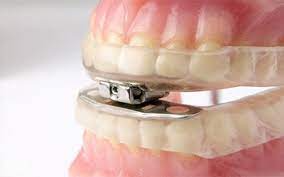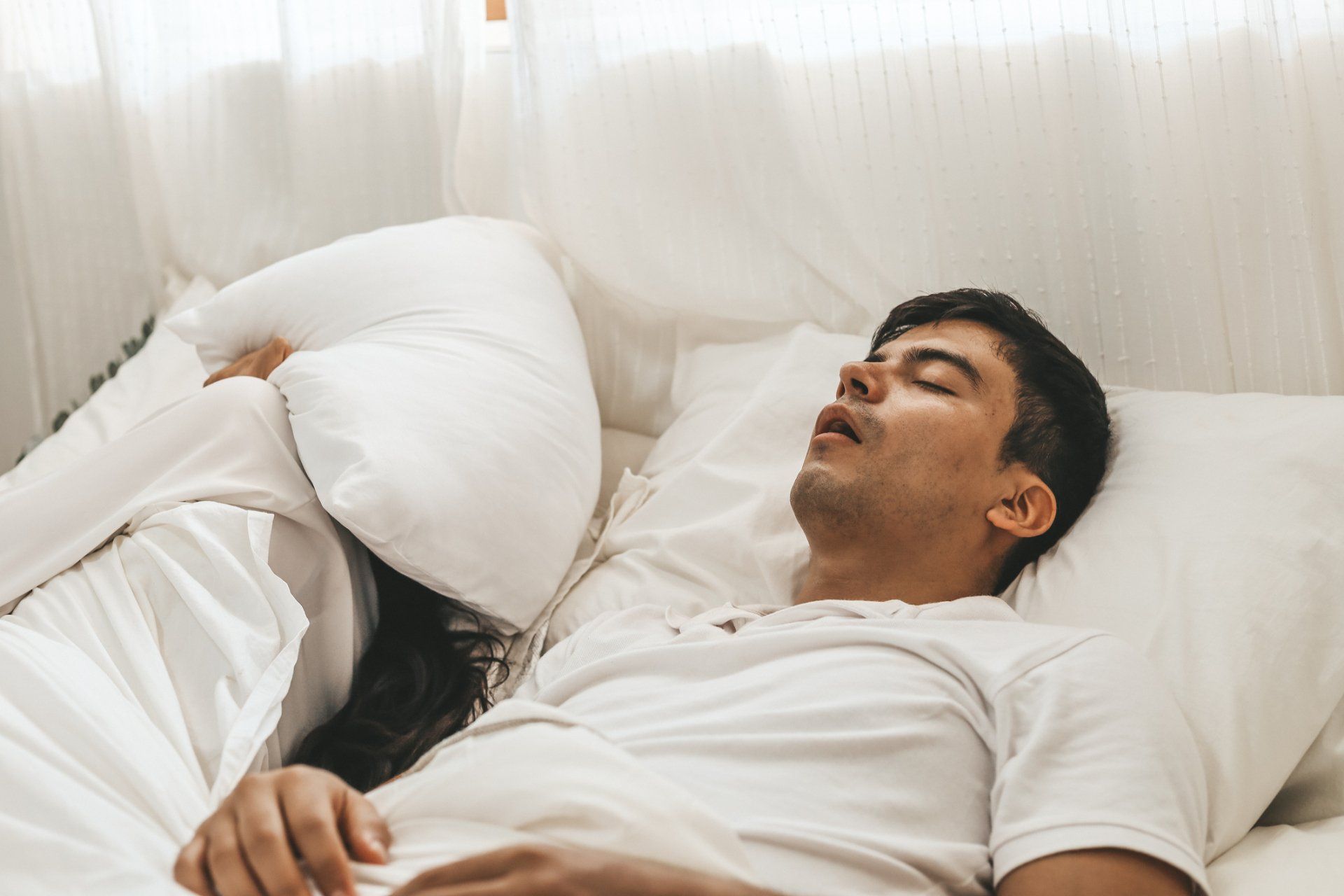Anti-Snoring Appliance
In Sydney
Does your patient snore? If they do - they are not alone. Habitual and intermittent snoring is reported to affect up to 34% of the adult population.
Should they be concerned?
YES! Especially if they also exhibit some of the symptoms listed below.
They may also be suffering a sleep disordered breathing condition called Obstructive Sleep Apnoea.

Symptoms Of Obstructive Sleep Apnoea.
Quick Self-Assessment
- Do you snore loudly?
- Do you snore every night?
- Have you or your partner moved to another bedroom?
- Do you choke or gasp during sleep?
- Have you woken shortly of breath during the night?
- Are you restless during sleep?
- Have you been told you hold your breath during sleep?
- Are you drowsy in the afternoon?
- Do you have toilet visits during the nights?
- Has it reduced sexual activity?
- Do you suffer heartburn (indigestion) at night?
- Do you suffer morning headaches?
- Are you irritable on waking in the morning?
- Do you suffer excessive daytime sleepiness?
- Have you dozed off while driving?
- Do you suffer from High Blood Pressure?
- Do you fall asleep at meeting, reading or watching TV?
- Are you tired upon waking (lethargic, no energy)?
Discuss this with your patient.
What Causes Snoring?
Most typically, snoring is caused by poor muscle tone and extra tissue in the tongue and throat. This causes the tongue to relax and fall backward in the throat, resulting in restricted air flow and vibration of the soft tissues in the back of the mouth.
Should you be concerned?
Yes. In the short term, snoring causes headaches and leads to a lack of productivity. Long-term, chronic snorers tend to develop high blood pressure and are more apt to have heart and lung problems than non-snorers. A study published in the August 2000 issue of the Archives of Internal Medicine finds that people who snore loudly – in the absence of other risk factors for sleep-disordered breathing, such as obesity – are 11/2 times more likely than others to have high blood pressure.
What Is Obstructive Sleep Apnoea (OSA)?
The most advanced symptom of snoring is called obstructive sleep apnoea of OSA. OSA is an interruption of breating during sleep caused by the tongue and excessive tissue completely blocking the airway. When breating stops, the air is prevented from entering the lungs, causing the heart to work harder to circulate blood throughout the body. Eventually, OSA can cause high blood pressure, irregular heartbeats or even heat failure.
Researchers studied sleep and cardiovascular information on 6,132 people who were at least 40 years old.
What does snoring have to do with my dentist?
Often, the tell-tale signs of snoring like throat irritation and other symptoms are evident in a dental examination. If your dentist suspects that you have obstructive sleep apnoea (OSA), he may refer you to a physician for a more definite diagnosis. The physician may request that an overnight sleep study be conducted to determine the appropriate course of treatment, if any. They are treating snoring and obstructive sleep apnoea with oral appliances.
Browse Our Website
Contact Details
Phone: (02) 9968 1910
Fax: (02) 9968 3478
For account information or enquiries
Please Email: reception@macono.net.au
For 3D digital and technical enquiries please contact:
3d@macono.net.au
Address: Shops 2-3, Ground Floor, 148-152 Spit Road, Mosman NSW 2088








